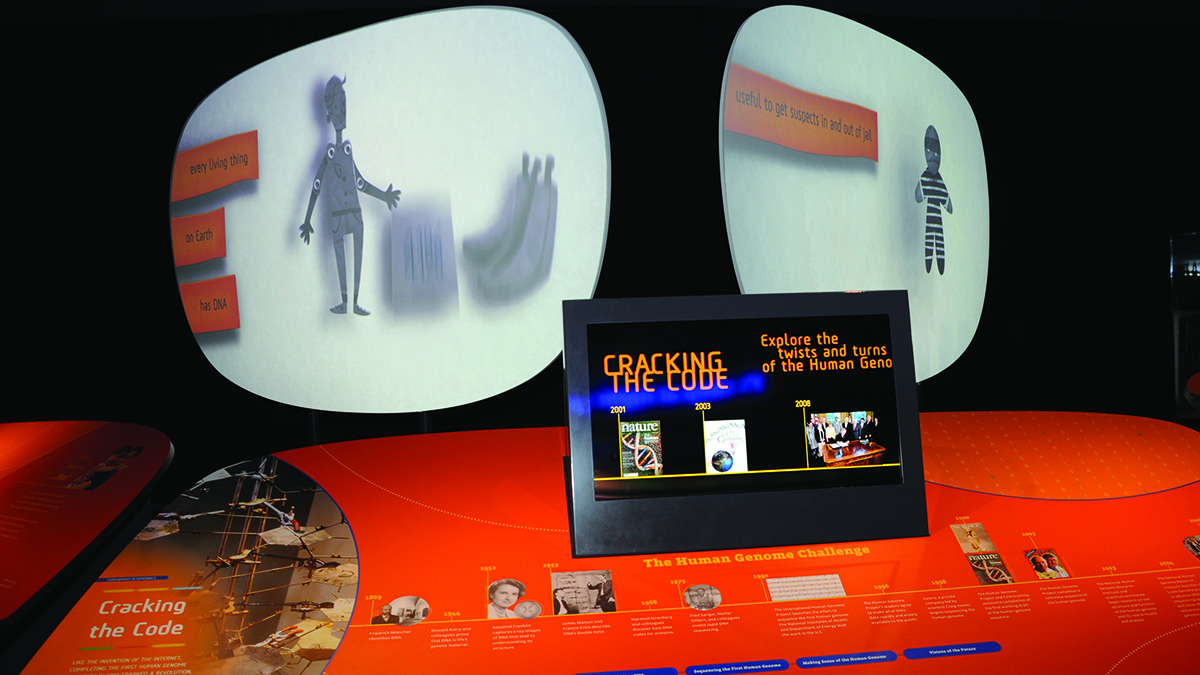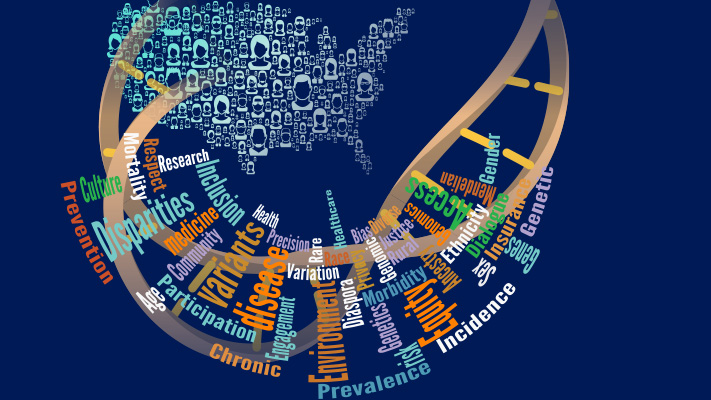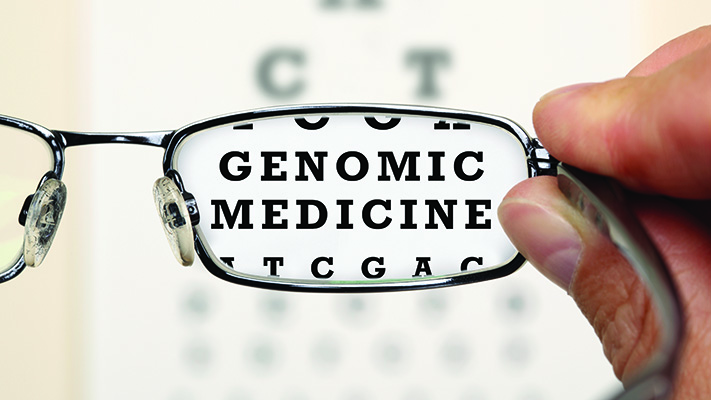
On October 21, the Genome: Unlocking Life’s Code exhibition reopened at the Smithsonian’s National Museum of Natural History (NMNH) in Washington, D.C. The exhibition debuted at this site in 2013 to commemorate the 60th anniversary of the discovery of the double-helical structure of DNA and the 10th anniversary of the completion of the Human Genome Project. It contains educational resources and interactive modules that allow visitors to learn about genomic science and how it affects their lives.
The exhibition examines the complexities of the genome — the complete genetic or hereditary material of a living organism — and chronicles the remarkable breakthroughs that have taken place since the completion of the Human Genome Project a decade ago. With cutting-edge interactives, 3D models, custom animations, and engaging videos of real-life stories, the exhibition examines both the benefits and challenges that genomics presents to modern society.
Genome: Unlocking Life’s Code is organized around three content areas that offer visitors personalized and interactive experiences exploring what a genome is (The Genome Within Us), how it relates to medicine and health (Your Genome, Your Health), and how it connects humans to all of life on the planet (Connections: Natural World and Genomic Journey). By highlighting examples of ways in which genome science can affect their lives in ordinary and extraordinary ways, visitors come to learn how genomics can affect perspectives about health, identity, and the place of humans in the natural world.
Genome: Unlocking Life’s Code is a collaborative effort — made possible through privately-raised funds — between NHGRI and NMNH. Teams from both institutions contributed scientific and historical information to the exhibition. Over 3 million visitors viewed the exhibition at NMNH during its original stay in Washington, D.C., after which it left NMNH in September 2014 and subsequently traveled to 12 states and Canada. Extensive effort went into designing and constructing the exhibition in a fashion that would allow it to be disassembled and transported to the various museums and science centers across North America. The exhibition was updated by NHGRI and NMNH staff for its reopening, and both organizations are looking forward to further sharing their excitement for genomics research with the public.
Along with the return of the exhibition to Washington, D.C., the Genome: Unlocking Life’s Code website has been redesigned with a new look and user interface. By browsing or using key word searches, users can easily access the collection of the site’s educational materials, which includes training activities, interactive timelines, videos, and lesson plans. For example, in the “Genomics: Insights” section of the website, one can find the latest in science communication presented by the next generation of scientists. Sign up for monthly newsletters to learn about new resources and educational tools. A remote visit of the exhibition is also available through a virtual tour.
NMNH also created do-it-yourself (DIY) mini versions of some of the panels from the exhibition. These panels can be freely downloaded for printing and are available in multiple languages. Called “Genome DIY,” this resource includes graphic panels and interactive media that can be placed in a variety of venues, such as libraries and community centers.
It is gratifying that the partnership between components of two scientific icons of the U.S. government — the Smithsonian Institution and the National Institutes of Health — remains strong. In fact, Carla Easter, Ph.D., a lead developer of Genome: Unlocking Life’s Code and former chief of the NHGRI Education and Community Involvement Branch, joined NMNH in May 2021 as the museum’s first Broh-Kahn Weil Director of Education. In this role, Carla serves as the leader of NMNH’s Department of Education, Outreach, and Visitor Experience. Both institutions remain committed to increasing the public’s awareness of genomics and its significance in the world.
It is also exciting to note that the Genome: Unlocking Life’s Code exhibition has already had a long life and will continue to bring genomics to the public. The exhibition will be open at the NMNH until summer 2022.
![]()






